BETTER CALL SAUL, 6.13 – ‘Saul Gone’
Jimmy is captured by the police but has a plan to avoid a life sentence.
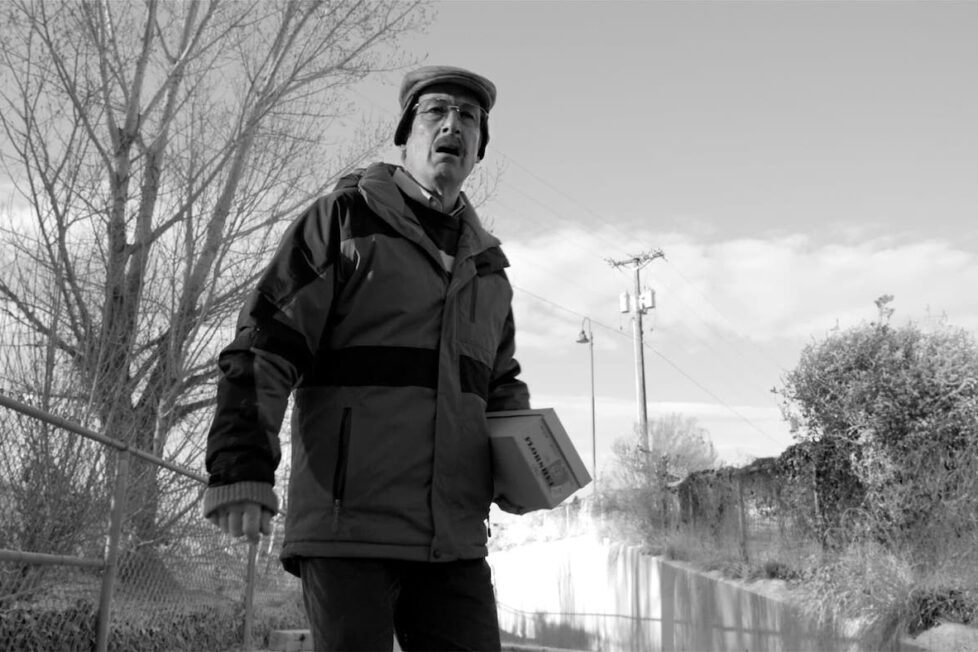
Jimmy is captured by the police but has a plan to avoid a life sentence.


Series finales are tough to pull off. Expectations are extraordinarily high and there are often lots of dangling threads to tidy up. Better Call Saul has been a masterclass of writing from the beginning—in many ways perfecting what Breaking Bad achieved because its creators were more experienced by the time it debuted. I’ve heard it said that Breaking Bad was a better story, but Better Call Saul is a better-told story. That sounds like a fair assessment.
“Saul Gone” will thankfully go down as one of TV’s great series finales and the perfect bittersweet ending for this show. I had almost no idea what to expect from these final 70-minutes and yet it seemed almost inevitable as things played out; offering Jimmy McGill (Bob Odenkirk) both deserved penance and earned redemption. I particularly liked the throughline of Jimmy’s thought experiment about time travel (or regret really), as the episode also managed to say farewell to other significant characters we’ve lost along the way.
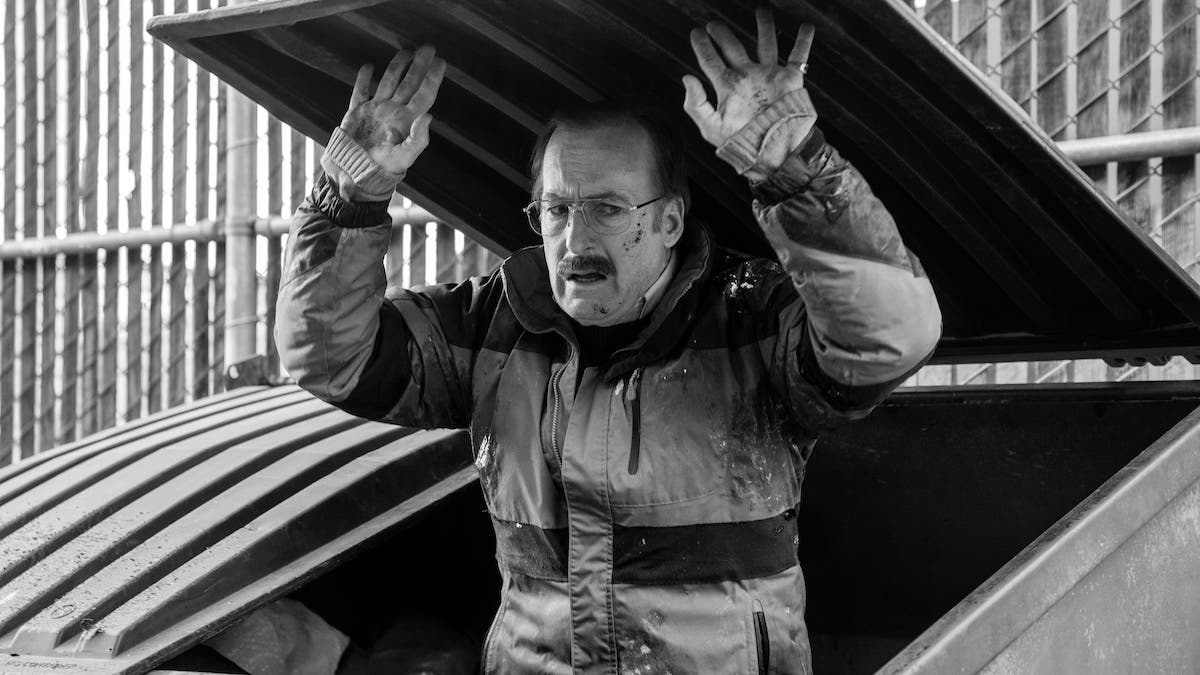
Indeed, the first scene was a flashback to the phenomenal “Bagman” episode with Jimmy and Mike Ehrmantraut (Jonathan Banks) out in the sweltering desert together, happening across some drinkable water and resting up. Jimmy first poses the classic time travel question here (when would you go if you could?), with Mike initially choosing the day his son died in 2001, then changing it to 1984 when he first took a bribe that set him on the path of being a dirty cop and eventual gangster. It was a rare moment of Mike opening up, particularly to Saul (whom you always feel he considers a bit of a joke), and yet Saul’s own response to his question revolved around a get-rich-quick scheme because of the foreknowledge he’d have. He doesn’t ever want to face up to regrets, as it’s an admission things went wrong in his life.
The time travel question returned in later flashbacks, the best being a scene between Jimmy and Walter White (Bryan Cranston) as they’re cooped up together awaiting a means to escape Albuquerque with new identities. This was a much better scene for Cranston than his earlier cameo and a reminder of just how gruff and ill-tempered his character was! I’d somehow forgotten how abrasive Walt could be without being in his company for a few years. As Walt attempted to fix some noisy pipes, he eventually only answered Saul’s trivial question when it wasn’t couched in sci-fi terms and unloaded a burden about his regret over Gray Matter Technologies (the company that became a huge success off the back of his talent, but which he was skillfully manoeuvred into leaving for an unremarkable life as a chemistry teacher). And again, Jimmy’s own answer is some nonsense about a slip-and-fall scam because he’s always avoiding any notion he made bad choices.
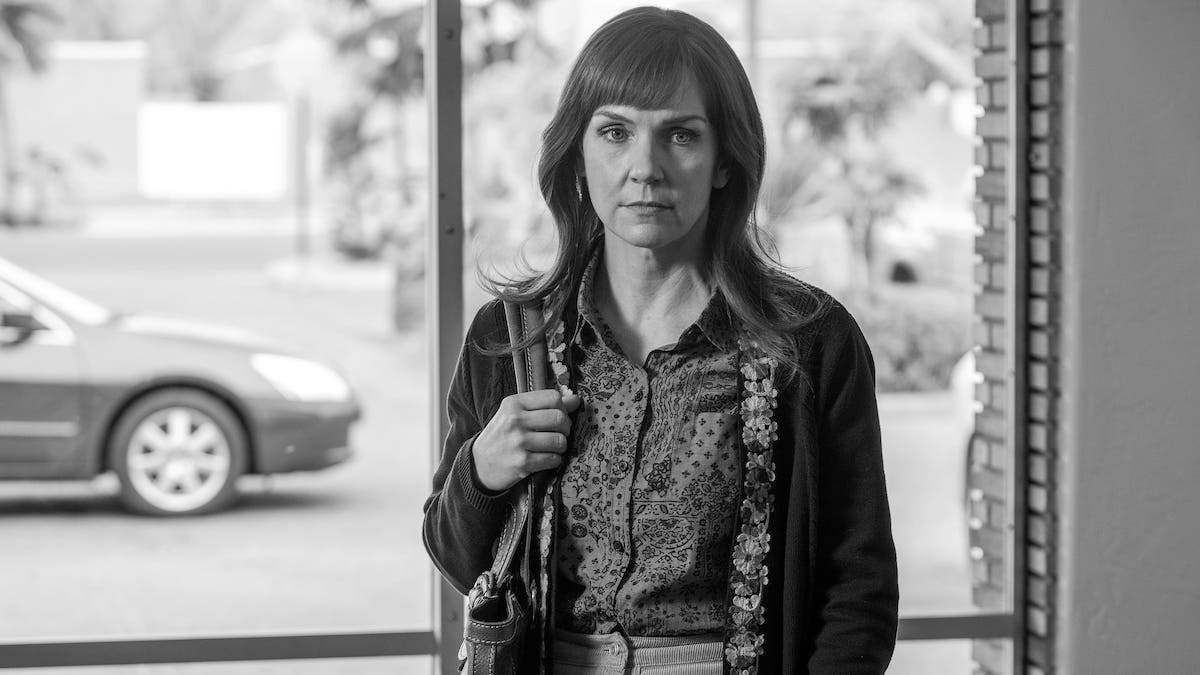
The least successful flashback belonged to Chuck (Michael McKean), although it was certainly worthwhile having that character return because he was such a huge part of Jimmy’s storyline in the earlier seasons. I just didn’t think it added too much, beyond a reminder of what their dynamic was like.
The talk of regrets expertly fed into the present-day story of Jimmy being caught in Nebraska after Marion (Carol Burnett) tipped the cops off, as his last-ditch effort to call vacuum salesman Ed Galbraith for another extraction didn’t come to pass. It’s a shame Robert Forster passed away after filming El Camino: A Breaking Bad Story (2019) because one imagines he would have had a quick cameo here answering Saul’s call seconds before the police knocked on the dumpster Jimmy’s hiding in.
The meat of the finale was about Jimmy trying to use his skills as a lawyer and conman to wriggle out of a life sentence for his crimes. It made total sense for the show about a criminal lawyer to end with scenes where he’s the one on trial in the kind of courtroom scenes we’re accustomed to seeing from a different perspective. And it was a wonderful piece of writing when Jimmy was put in front of the lawyer who’ll prosecute him, together with a surprise appearance from Marie Schrader (Betsy Brandt)—there to remind audiences of the human cost of the Breaking Bad story and the pieces everyone was left to pick up after Walter White’s death.
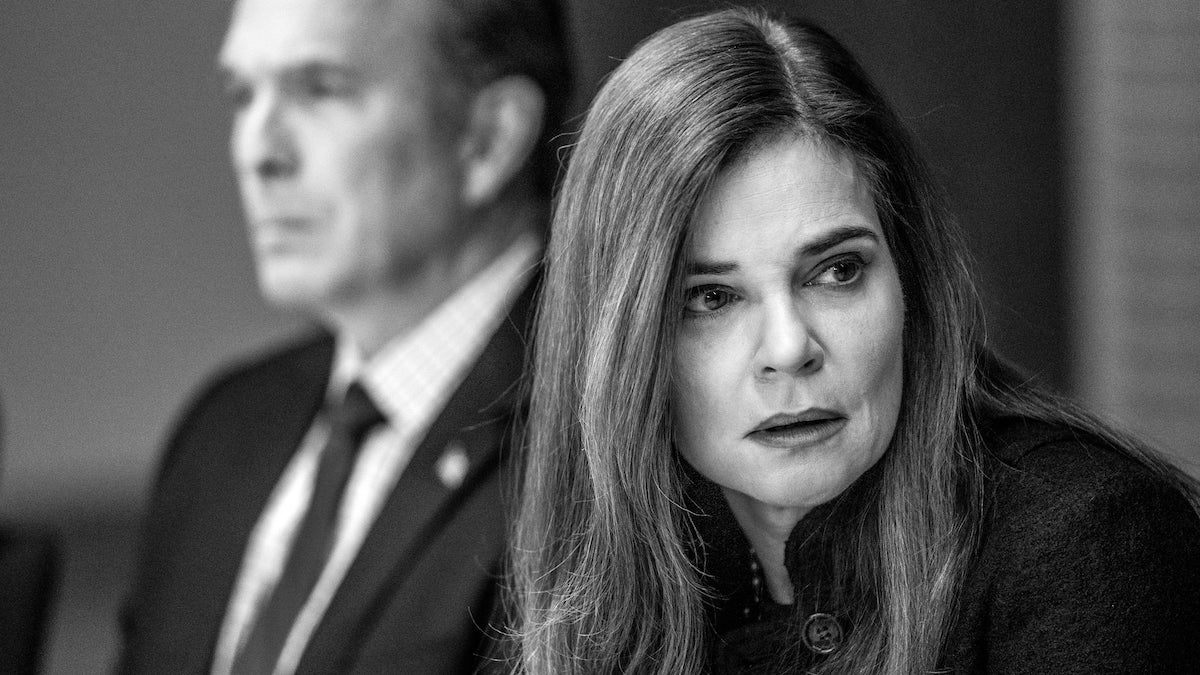
And for a character who got a little lost in the mix of that other show, I thought Brandt was excellent in this small appearance. And it was such a fantastic turn for Jimmy to play the victim, by melding a few half-truths together and pretending he was cowed into helping Walter and feared for his life if he refused to launder their money and help them make millions. The prosecuting lawyer realised his lies would undoubtedly convince at least one jury member, so was forced to cut a deal that would give Jimmy a cosy seven-and-a-half year sentence in a minimum-security prison.
For a while, it seemed like the show would end with Slipppin’ Jimmy again pulling the wool over everyone’s eyes and talking himself out of serious repercussions for all the damage and pain he’s caused. But things got more interesting after he realised Kim (Rhea Seehorn) had already revealed the true circumstances of Howard Hamlin’s death (denying him another bargaining chip—for weekly ice cream!), and that she opened herself up to a civil suit by putting it all on paper and delivering that document to Howard’s widow. Suddenly, a sense of amazement that Kim would do something so selfless swept over Jimmy, with perhaps the urge to protect the woman he’s always loved mixed in. It was definitely a tipping point for what shaped the latter third of the episode, as the pretence of master bullshitter ‘Saul Goodman’ washed away and all that was left behind was the erstwhile ‘good man’ of Jimmy McGill.
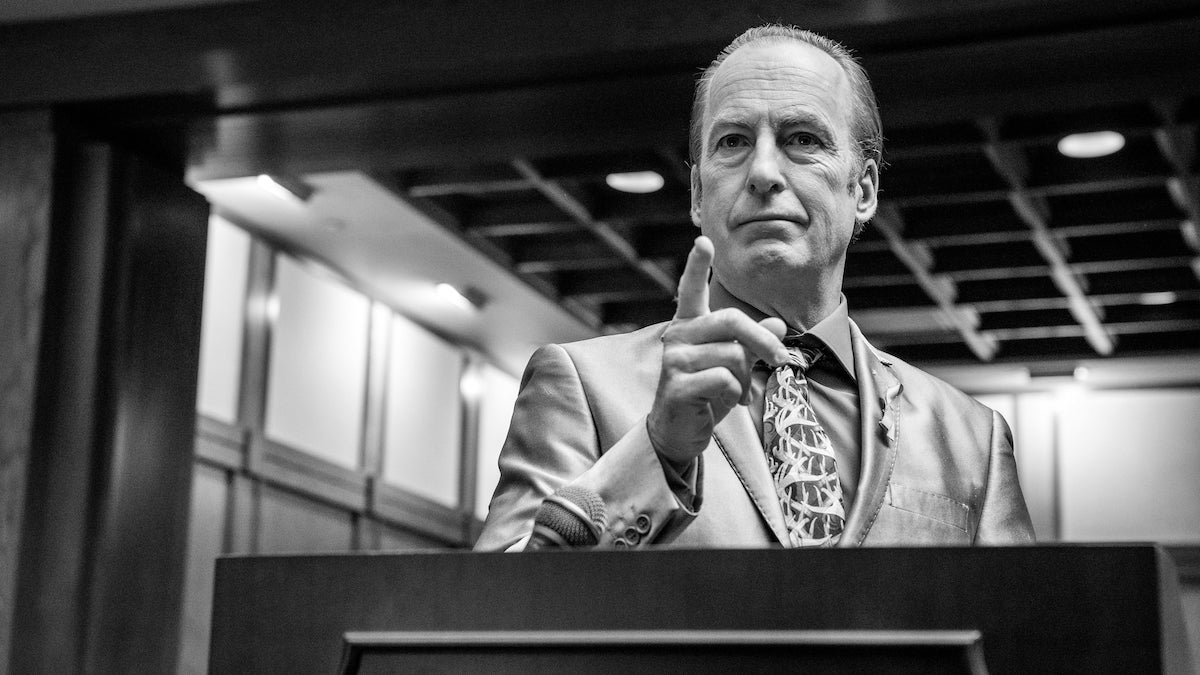
In Florida, with Jimmy set to get off with a paltry sentence, his ‘showtime’ moment in court began with the same sob story he gave Marie Schrader but morphed into him offloading the unvarnished truth with Kim in attendance to see it. This wasn’t Saul Goodman playing the systems and toying with people’s emotions to get what he wanted, it was Jimmy finally confronting his own regrets—including the way his bad behaviour led to his brother Chuck’s (Michael McKean) tragic death. It wasn’t a performance to hoodwink a judge, it was a true confession that followed in the footsteps of what Kim did to find her own inner peace. And it was also a way to show her, publically, that he’s changed and is now taking responsibility.
Better Call Saul perhaps couldn’t end with a truly happy or sad ending, so this bittersweet one was pitch perfect. Jimmy got whisked away to a maximum-security prison for 86 years, but there behind bars he has a celebrity status amongst inmates—who even chanted “Better Call Saul!” on the bus over there when they realised they were sharing their ride with a notorious crime lord’s personal lawyer. And Jimmy’s incarceration doesn’t look too dissimilar to the purgatory of working in a Cinnabon, with him baking bread in the kitchen and fist-bumping prisoners, who all seem to like him. And there he’s visited by Kim, who witnessed him doing the right thing and knows he’s deserving of her friendship at the very least. It was also a touching moment to have them share a cigarette together in the visitor’s room, as that’s exactly how these characters first interacted when Better Call Saul began.

The final shot of Jimmy giving Kim playful ‘finger guns’ as she walked past the prison yard, resigned to his life as a prisoner and yet clearly in good spirit despite all that, was a beautiful and reflective way to end the show. It even provides a further sense of closure to the finale of Breaking Bad (in the same way El Camino made Jesse’s story end better). This episode actually felt more like a dual send-off for both shows and Better Call Saul is now essential viewing for those who misjudged it early on and didn’t stick with it.
Overall, Better Call Saul could have been a disastrous attempt to catch lightning in a bottle twice after Breaking Bad, but it found its own niche and arguably crafted a more compelling character study in some ways. I still prefer Breaking Bad because Walter White’s journey was inherently more compelling and it had a more direct attachment to the criminal underworld every step of the way, but that’s not so Better Call Saul didn’t improve on its shortcomings. Its characters felt richer in some ways and they certainly did a far better job with female ones like Kim compared to Skyler White. And there’s a great argument that fan-favourites Mike and Gus (Giancarlo Esposito) got many of their best moments in this spin-off, as the writers were frankly more aware of how best to use the actors and enrich what we already knew about the characters.
I’m going to miss Better Call Saul, and it’s almost like saying goodbye to Breaking Bad a second time, but I’m also going to miss just hanging around Albuquerque and following the moral downfalls of those who live there.

